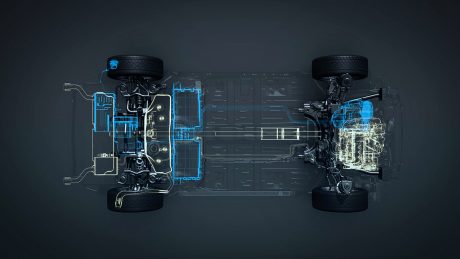*/
]]>
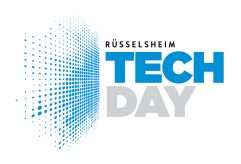
Rüsselsheim TechDay (11-14 June 2018): Around 240 journalists, financial analysts, suppliers, dealers, politicians and employees will learn the key role of the Rüsselsheim Research and Development Center in the global engineering network of Groupe PSA.
Although the electrification of the Opel model range is a mainstay of the PACE! Plan, that does not mean the end of the combustion engine. On the contrary. To clarify throws Dr. In a workshop titled “State-of-the-art drivetrain technologies for lowest CO2 emissions”, Matthias Alt declares that the automotive future of the year 2030 is 2030: “45 percent of all cars will be powered by electrified drives, more than 80 percent of them as a hybrid, ie in combination with an internal combustion engine “Therefore, the Opel Global Engine Chief Engineer expects the number of internal combustion engines to even increase in the future. “In addition, combustion engines are currently playing an important role – in addition to electrification – when it comes to reducing emissions.”
In the future, Alt and his colleagues will concentrate on four systems: the battery-electric drive (BEV), the hybrid drive, fuel cells and the combustion engine. “Working together with the Groupe PSA gives us excellent cost-efficiency, as we can increase the number of units and thus reduce production costs,” said Alt.
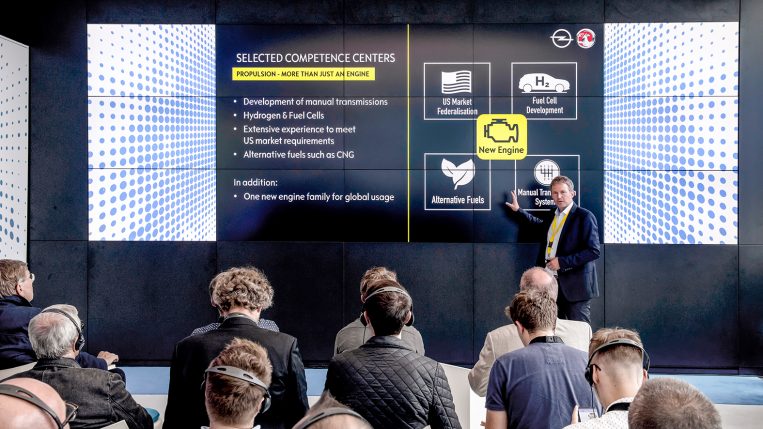
Quartet of drives: Dr. Ing. Matthias Alt explains which competence centers the Groupe PSA places in the field of drive systems in the Rüsselsheim Engineering Center.
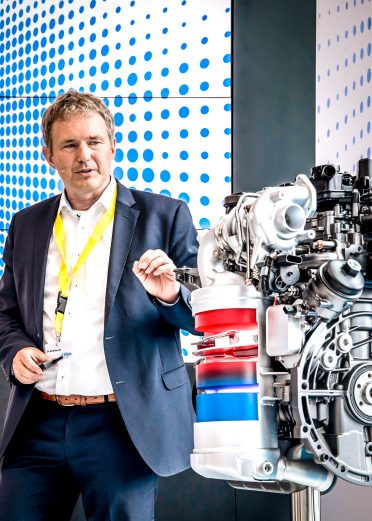
State-of-the-art: Alt declares the new 1.5HP BlueHDi diesel engine delivering 102 to 130 horsepower, meets the Euro 6d TEMP standard and shines with 100 percent digital design and engineering.
The importance of Opel in terms of propulsion systems underscored the establishment of the Centers of Competence for manual transmissions, hydrogen & fuel cells, alternative fuels and the development responsibility for a new global gasoline engine family.
“Thanks to our many years of experience, we have now assumed global responsibility for the entire Group in these areas. The four-cylinder turbo engines are developed for all markets and brands of Groupe PSA and introduced in 2022. “
![]()
“Our engines are already future-proof and, in addition, every future passenger car model series in Europe will be electrified.”
– Dr. Matthias Alt –
![]()
The cooperation creates a “win-win situation” for the entire group. “So we have a clear carbon strategy to reach the EU target of 95 grams in 2020. Our engines are already future-proof and, in addition, every future passenger car model series in Europe will be electrified. “
↑ Video: State-of-the-art drive technologies for lowest CO2 emissions
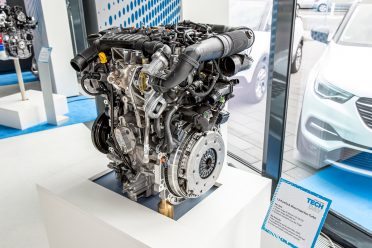
“Engine of the Year”: The 1.2 PureTech Direct Injection Turbo that delivers up to 130 hp and 230 Newton meters and complies with the Euro 6d TEMP standard.
Subsequently, Dr. Burkhard Milke gives an overview and an overview of how Opel is strategically positioned in terms of electrofication and mobility. “After the Ampera and the Ampera-e, which were and are leaders in the industry, we have to look ahead,” says Director Electric & Electronic Systems.
By 2020 there will be four electrified model series at Opel, and by 2024 this will apply to all passenger car models in Europe. “The multi-energy platforms allow us to electrify multiple vehicles in a short time.”
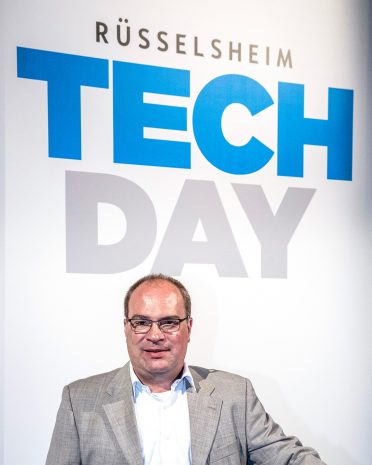
Explains the strategy of the Center of Competence for Alternative Drives: Dr. Ing. Burkhard Milke, Director Electric & Electronic Systems.
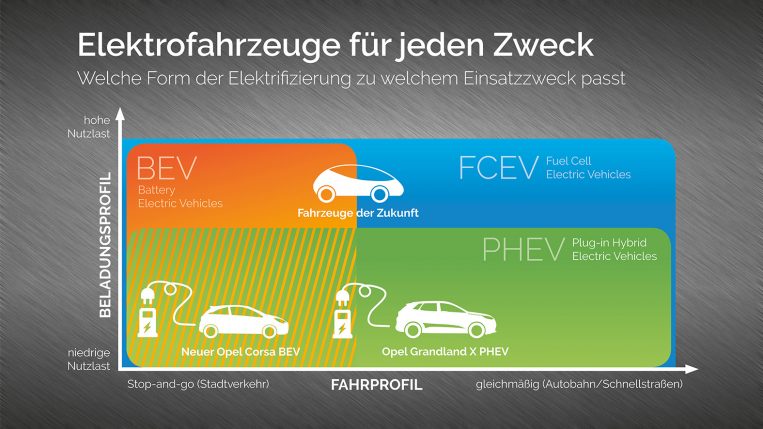
For every purpose: Battery electric drives (BEV) are perfect for city traffic, plug-in hybrid drives (PHEV) are predestined for highways, while fuel cell vehicles (FCEV) are all-rounders.
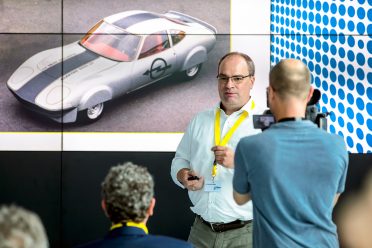
The Electric GT from 1971: On the way to the strategy of the future Milke makes a detour into the past.
First, the Grandland X 2020 as PHEV (plug-in hybrid) in Eisenach roll off the line. “The PHEV will be produced there on a production line with the Grandland X and will offer the same space,” explains Milke.
The same applies to the new Corsa, which in Zaragoza 2020 as eCorsa run off the line and will make no compromise in space. “In the same year, the electrification of the portfolio of our light commercial vehicles starts.”
![]()
“The PHEV will be produced on a production line in Eisenach with the Grandland X and will offer the same space.”
– Dr. Burkhard Milke –
![]()
The electric drives would have to cover every scenario in the future, according to Milke: “Battery-electric vehicles like the new Corsa are more useful in city traffic, plug-in hybrids are more suitable for long, even journeys. The combination of both form fuel cell vehicles. “
As of June 2018
Photos: Opel
